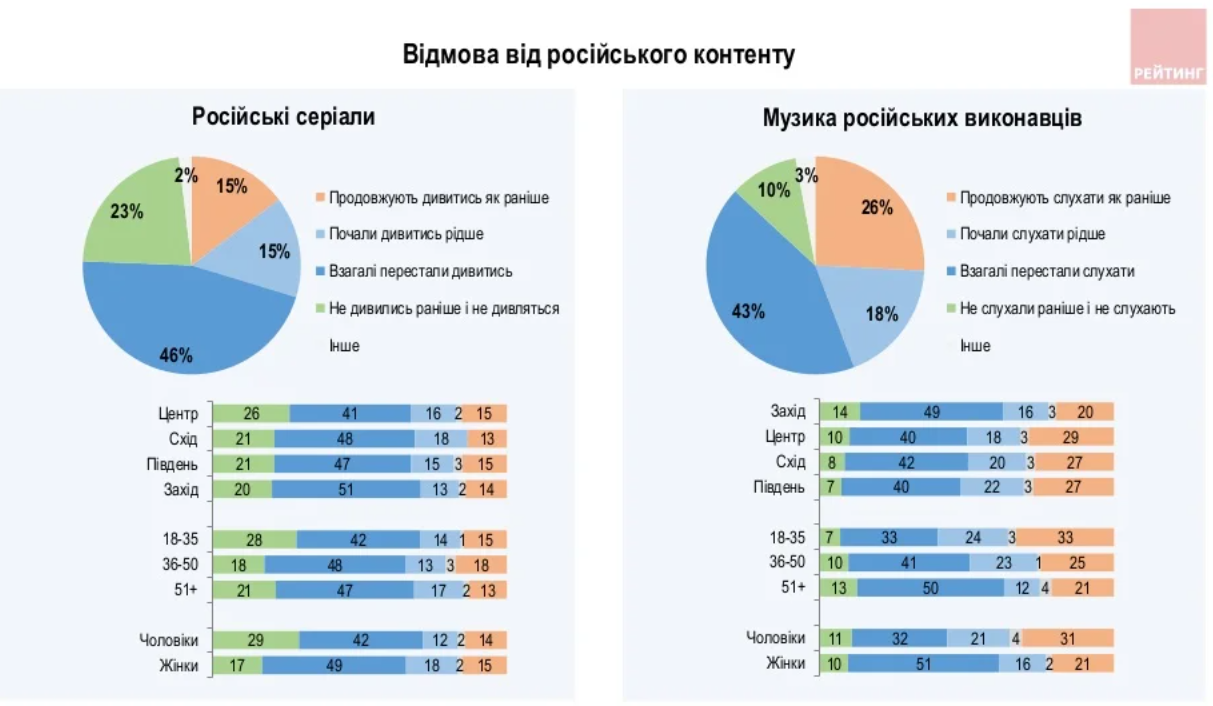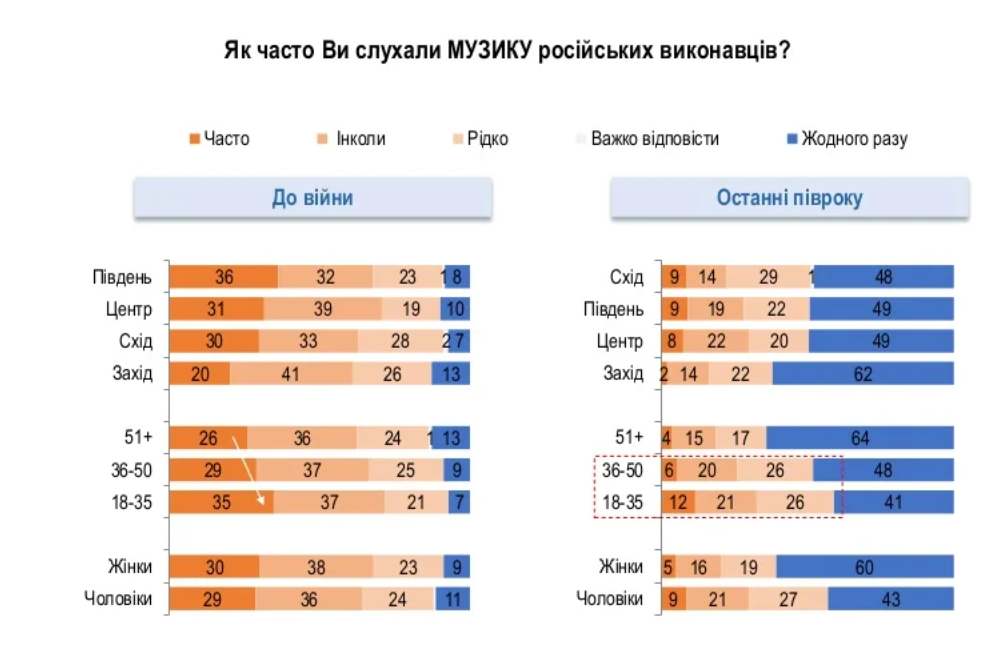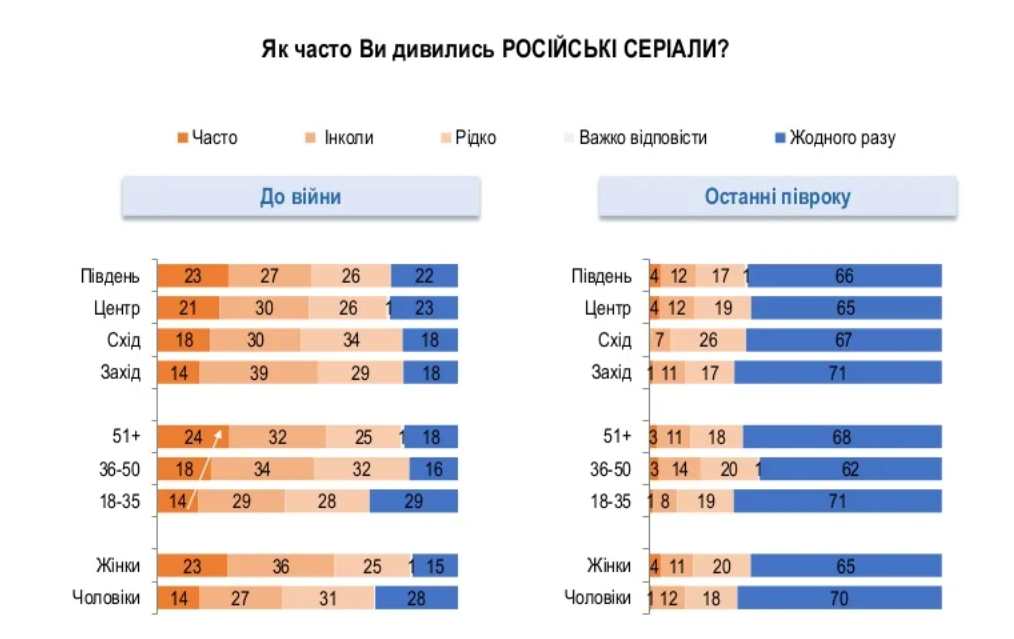The levels of russian information content consumption among Ukrainians has dropped sharply.
Such are the results of a national survey conducted by Rating sociological group on August 17–18.
46% of respondents stopped watching russian TV shows altogether, 23% did not watch them before and do not watch them now. In general, almost 70% have not been watching russian shows in the last six months, and this number has tripled. Only 15% continue to watch russian shows like before.
The sociologists also note that 43% of the respondents stopped listening to russian music altogether, another 18% did not listen to it before and do not listen to it now. In total, almost 60% have not been listening to russian music in the last six months, and this number increased almost fivefold. Only a quarter continue to listen to russian music like before.

Before the start of the full-scale invasion, older respondents, women, and residents of the east and the south used to watch russian TV shows more often than other groups. Young people, people of the middle generation, and men used to listen to russian music. Today, people from the middle generation and women watch russian shows somewhat more often than others. On the other hand, when it comes to music, the youth, the middle generation, and men differ significantly in how often they consume it (in these categories, a third continue to listen to music by russian artists).


The survey interviewed 1,000 respondents aged 18 and older in all regions except for the temporarily occupied territories of Crimea and the Donbas, as well as territories where there was no Ukrainian mobile connection at the time of the survey.
The research was conducted via telephone interviews based on a random sample of mobile phone numbers. The representativeness error of the survey with a confidence interval of 0.95: no more than 3.1%.
